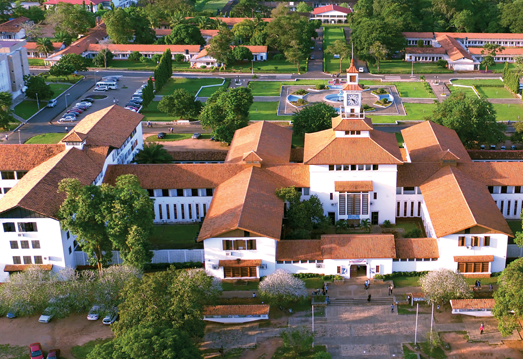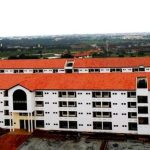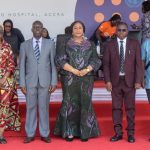Research fellow at the Institute for Environmental and Sanitation Studies (IESS) at the University of Ghana, Dr. Ferdinand Tornyie, has said that the University of Ghana can be one of the leading institutions in Ghana and in the world in championing energy transition if the university take advantage of natural resources available.
According to him, management of the university has untapped potential in using renewable sources of energy such as solar and biogas energy which can make the university one of the best institutions on the agenda of energy transition.
On the 19th of January 2023, the University of Ghana sent an email to all students informing them of a planned maintenance shutdown by the Electricity Company of Ghana (ECG) on the 20th of January 2023, between the hours of 10:00 a.m. and 4:00 p.m.
Also on Tuesday, January 24, 2023, the university community was also without power from 5 p.m. to 10 p.m. This therefore raised questions about the stable supply of electricity to the campus among students.
Speaking to UniversNews, Dr. Ferdinand Tornyie indicated that the university can produce enough biogas to complement other sources of energy to provide electricity to all parts of the campus due to the large population present in the university community.
“Look at the University of Ghana having almost 40,000 to 60,000 inhabitants in the same area. Can you imagine the quantum of biomass waste they will produce in a day, and when that biomass is channeled into a communal biodigester where all the waste is produced is converted into biogas to be piped into various halls that will be used for cooking or even used to generate power. We will be among one of the leading institutions in Ghana through government’s agenda on energy transition and then also the global agenda on energy transition. This is doable and we must take the advantage.”
Dr. Ferdinand Tornyie opined that solar energy could be harnessed through the use of solar car parks on campus, which could power departments and other units of the university.
“When it comes to Legon though, we have some places that have car parks, those car parks can be converted into solar car parks, where the roofing will be all solar panels. The car park for each department or center is full of solar panels which is giving energy to power that block.”
Moreover, he added that, based on the setting of the university, the implementation of solar energy can be done at the college and department levels, where these units would not have to rely on the power supply from the Electricity Company of Ghana (ECG) alone.
“I believe in communal generation of energy but for University of Ghana, looking at the setting, it could be handled from college levels or even department levels, where you have your own stand alone power generation system having solar panels on your building. We can even incorporate that with smart system where you are using both electricity from ECG and then the solar plant. So in the daytime you are using solar energy directly to cut down cost of procuring batteries. When solar goes down, the system will notice that by itself and switch to the electricity which is from ECG.”
Dr. Ferdinand Tornyie further urged university management to tap into some government initiatives, like those spearheaded by the Energy Commission, for persons and organizations interested in solar energy to be able to produce their own electricity and reduce the cost of electricity.
“I think as a University the Ghana government also has various initiatives that we could tap into. For example, government have some tax releaf for solar energy components. The University is a big community, we can take advantage of that, speak to the government because we spend a lot, look at the number of people on campus and the energy consumption that we take in a day. So you will realize that we will be paying less for electricity by generating our own energy.”
Story by: Alexander Kuuku Osei-Baidoo | univers.ug.edu.gh





